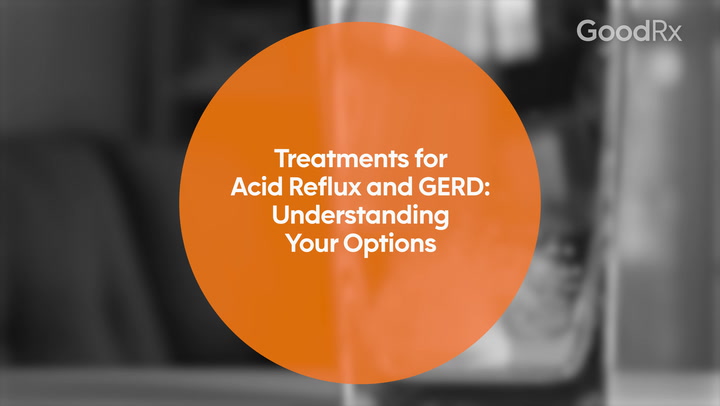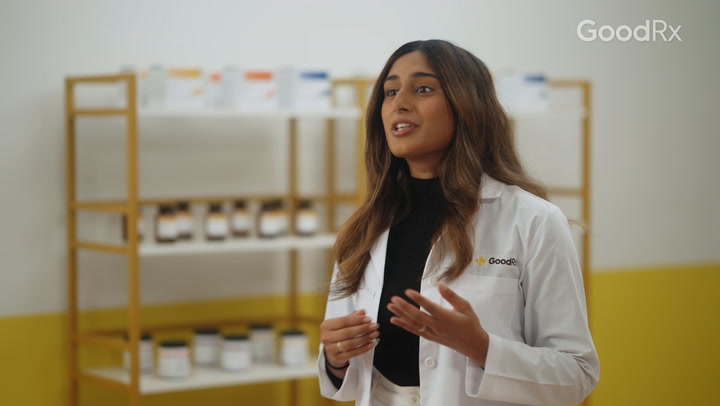
The 4 Best Drinks for Esophagitis (Plus 4 to Avoid)
Key takeaways:
Gastroesophageal reflux disease (GERD), infection, and medications can all cause esophagitis.
You can manage symptoms of esophagitis by adjusting your diet. Diet changes help you to avoid irritating your esophagus, and promote healing.
The best drinks for esophagitis include water, herbal tea, and plant-based milks. Avoid alcohol, acidic juices, and carbonated drinks if you have esophagitis.

The esophagus is a muscular tube that carries food from your mouth to your stomach. Inflammation in the esophagus is called esophagitis. It can cause symptoms like heartburn, chest pain, and difficulty swallowing.
Your diet can make a big difference in your esophagitis symptoms. Some drinks can trigger or worsen esophagitis. Others can help soothe and relieve pain. Here are four drinks that can help ease esophagitis, and four to avoid.
1. Water
Water can help lessen esophagitis symptoms. Water keeps things moving through the esophagus, and can temporarily lower the amount of acid in your stomach.
Get Exclusive Savings on Toprol XL (metoprolol ER)
With GoodRx you can save big on Toprol XL.

GoodRx is NOT insurance. GoodRx Health information and resources are reviewed by our editorial staff with medical and healthcare policy and pricing experience. See our editorial policy for more detail. We also provide access to services offered by GoodRx and our partners when we think these services might be useful to our visitors. We may receive compensation when a user decides to leverage these services, but making them available does not influence the medical content our editorial staff provides.
© 2025 Melinta Therapeutics, LLC All rights reserved 5/2025 PP-TOP-US-0017
Frequent sips of water may soothe the esophagus if you’re dealing with heartburn or gastroesophageal reflux disease (GERD). And drinking plenty of water when you take medication can also help prevent pill esophagitis. This is when a pill gets stuck in the throat and causes inflammation. That’s why experts recommend taking medications with a full glass of water.
2. Herbal tea
Some herbal teas may calm esophagus irritation.
Chamomile tea is well known for its ability to help people get a good night’s sleep. But chamomile also has anti-inflammatory properties. This makes it a good choice for managing esophagitis symptoms.
Ginger is often used to help relieve nausea and vomiting. But ginger tea may also help relieve esophagitis caused by acid reflux. Ginger helps food move from the stomach into the small intestine. This means there’s less time for stomach contents to move backward into the esophagus (reflux) and cause irritation.
Just make sure to let your tea cool off before drinking. Hot liquids can actually worsen esophagitis.
3. Aloe vera juice
If you spend a lot of time in the sun, you may have used aloe vera gel to relieve pain from a sunburn. But did you know that drinking aloe vera juice can support your health in other ways?
There is some evidence that natural aloe vera juice may help relieve inflammation in the stomach and esophagus. Another small study found that medications were more effective for people with acid reflux when they drank aloe vera syrup.
But talk to your healthcare professional before trying aloe vera juice. It can be dangerous for people with some types of kidney disease. And aloe vera may interact with some prescribed medications.
4. Plant-based milk
Plant-based milks are made from nuts, seeds, grains, and legumes. Some examples of plant-based milks are:
Oat
Soy
Almond
Hemp
There are many potential health benefits to following a plant-based diet. These include better blood sugar control, lower blood pressure, and improved cholesterol. And swapping out cow’s milk for plant-based milk may help some people with esophagitis. Eosinophilic esophagitis (EoE) is a type of esophagitis that’s triggered by eating and drinking certain foods. Cow’s milk is a common EoE trigger. Eliminating dairy, and replacing it with plant-based milk, may help ease EoE symptoms.
Drinks that can worsen esophagitis
Some drinks can worsen esophagitis. They may directly irritate the lining of the esophagus. They may also make it easier for acid from the stomach to move up into the throat. Here are four drinks to avoid if you have esophagitis.
1. Alcohol
It’s not clear if an occasional alcoholic drink will worsen esophagitis. Some studies showed that avoiding alcohol did not improve people’s GERD symptoms. Other research found that people who drank alcohol were more likely to have symptoms like heartburn.
But chronic or heavy alcohol use is associated with increased risk of esophagitis. It can also lead to a condition called Barrett’s esophagus. People with Barrett’s esophagus have damage in the lining of the bottom part of the esophagus.
2. Acidic juices
Acidic juices can irritate the lining of the esophagus and make esophagitis worse. Juice made from citrus fruits — like orange and grapefruit — are common triggers for heartburn. Instead, try less acidic options like carrot juice. You can also try melon juice made from watermelon, canteloupe, or honeydew.
3. Carbonated drinks
Carbonated drinks may worsen esophagitis. But the evidence isn’t clear. One study did not find any evidence that carbonated drinks trigger heartburn. But other research found that people who drink carbonated sodas experience higher rates of heartburn.
It is hard to say if this relationship is due to carbonation, or because many sodas have high acid content. If you have esophagitis it is best to avoid acidic, carbonated drinks like soda.
4. Hot beverages
Hot beverages can trigger esophagitis. Consuming very hot food or drinks may damage the esophagus and even increase the risk of developing esophageal cancer. But how hot is too hot?
In studies, drinks over 140°F to 150°F were linked to higher rates of esophagitis. Most hot beverages are served at about 160°F to 185°F. To enjoy your favorite hot drink more safely, let it cool for a few minutes before sipping.
When should you seek medical care for esophagitis?
The occasional episode of heartburn after a spicy meal is usually not a cause for concern. But if you are having daily symptoms, talk to your primary care provider. It is important to diagnose and treat esophagitis. Untreated, esophagitis can lead to serious health conditions including esophageal ulcers, Barrett’s esophagus, and esophageal cancer.
You should seek care if you experience these symptoms:
Trouble swallowing
Getting food caught or stuck in your throat
Pain with swallowing
Vomiting
Unintentional weight loss
The bottom line
Esophagitis can cause heartburn and other painful symptoms. The best drinks for esophagitis include water, herbal tea, and plant-based milks. These drinks won’t irritate your esophagus and may promote inflammation healing. You should avoid very hot liquids, alcohol, and acidic drinks if you have esophagitis.
Why trust our experts?



References
Anh, N. H., et al. (2020). Ginger on human health: A comprehensive systematic review of 109 randomized controlled trials. Nutrients.
Antunes, C., et al. (2023). Esophagitis. StatPearls.
Brown, F., et al. (2008). Calculating the optimum temperature for serving hot beverages. Burns.
Clem, J., et al. (2021). A look at plant-based diets. Missouri Medicine.
Cohen, S., et al. (2014). The PH gene determines fruit acidity and contributes to the evolution of sweet melons. Nature Communications.
Djuv, A., et al. (2012). Aloe vera juice: IC₅₀ and dual mechanistic inhibition of CYP3A4 and CYP2D6. Phytotherapy Research.
Ernst, B., et al. (2021). Investigations concerning the impact of consumption of hot beverages on acute cytotoxic and genotoxic effects in oral mucosa cells. Scientific Reports.
Herdiana, Y. (2023). Functional food in relation to gastroesophageal reflux disease (GERD). Nutrients.
Islami, F., et al. (2009). High-temperature beverages and foods and esophageal cancer risk -- a systematic review. International Journal of Cancer.
Johnson, T., et al. (2010). Systematic review: The effects of carbonated beverages on gastro-oesophageal reflux disease. Alimentary Pharmacology & Therapeutics.
Kaltenbach, T., et al. (2006). Are lifestyle measures effective in patients with gastroesophageal reflux disease? An evidence-based approach. Archives of Internal Medicine.
Karamanolis, G., et al. (2008). A glass of water immediately increases gastric pH in healthy subjects. Digestive Diseases and Sciences.
Khomich, L. M., et al. (2020). [Carrot juice nutritional profile]. Voprosy Pitaniia.
Kikendall, J. W. (2007). Pill-induced esophagitis. Gastroenterology & Hepatology.
Leung, J., et al. (2013). Tolerance of baked milk in patients with cow's milk-mediated eosinophilic esophagitis. The Journal of Allergy and Clinical Immunology.
Pan, J., et al. (2019). Alcohol consumption and the risk of gastroesophageal reflux disease: A systematic review and meta-analysis. Alcohol and Alcoholism.
Panahi, Y., et al. (2015). Efficacy and safety of aloe vera syrup for the treatment of gastroesophageal reflux disease: A pilot randomized positive-controlled trial. Journal of Traditional Chinese Medicine.
Panahi, Y., et al. (2016). Effect of aloe vera and pantoprazole on gastroesophageal reflux symptoms in mustard gas victims: A randomized controlled trial. Pharmaceutical Sciences.
Reddy, A., et al. (2016). The pH of beverages in the United States. Journal of the American Dental Association.
Ronnie, F., et al. (2005). Predictors of heartburn during sleep in a large prospective cohort study. Chest.
Saleem, F., et al. (2023). Drug-induced esophagitis. StatPearls.
Schulz, R. M., et al. (2022). Effectiveness of nutritional ingredients on upper gastrointestinal conditions and symptoms: A narrative review. Nutrients.
ScienceDirect. (n.d.). Aloe.
Tariq, H., et al. (2019). Frequent sips of the water for the management of gastroesophageal reflux induced refractory cough: A case report and review of the literature. Case Reports in Gastrointestinal Medicine.
























